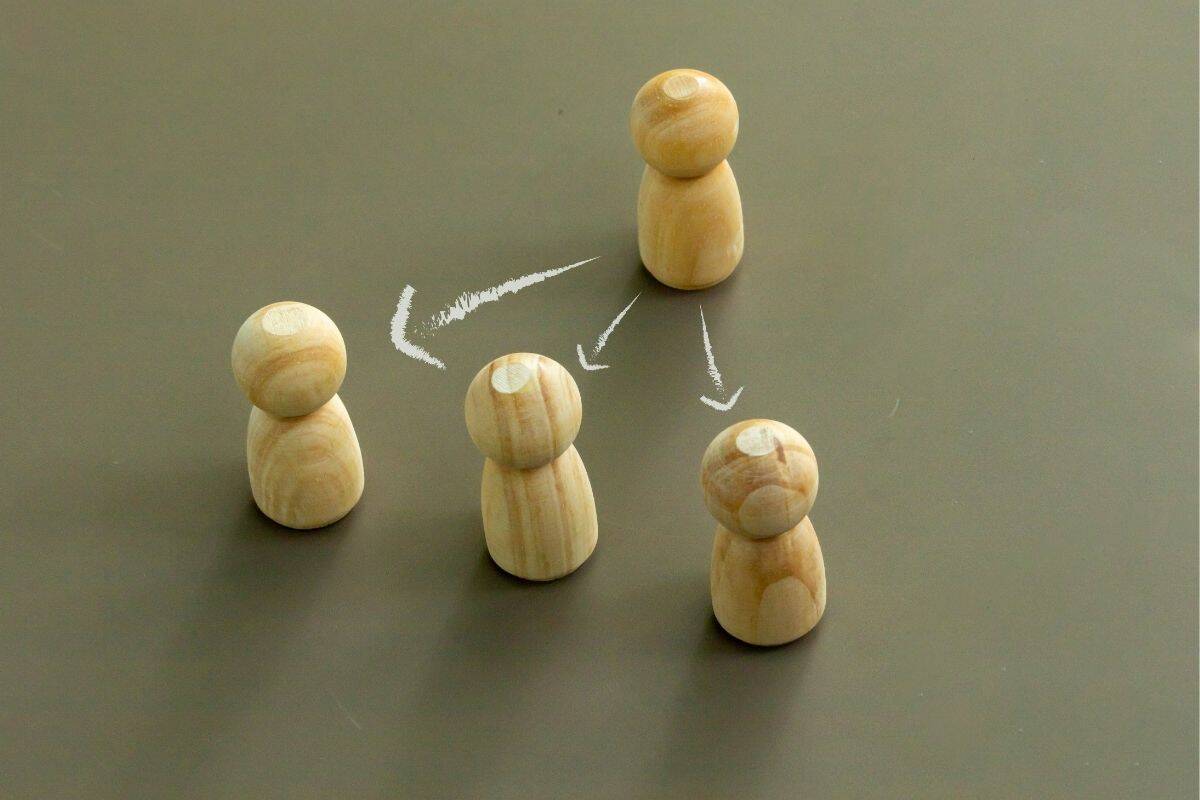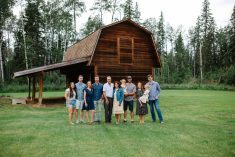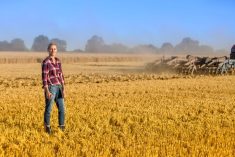What does leadership potential look like? Are there certain skills a parent should teach or encourage their kids to develop? And how can parents do that? Read or listen to this article to find out.
– April Stewart, CG Associate Editor
It’s actually two questions. It isn’t just how much leadership potential have my kids got? It’s also, how much better will they get if I provide the right training and support?
Read Also

Executive decisions: what and when to delegate on the farm
Consider the end state you’re working to achieve on your farm when deciding what tasks to delegate, when to do so and on whom, farm management advisors recommend.
And the reason parents need to ask both questions is because science is learning an immense amount about what leadership potential looks like.
“Leadership is really about people’s adaptive capacity,” says Kelly Dobson, founder of LeaderShift and the National Farm Leadership Program.
“Basically, adaptive capacity is our ability to learn and our willingness to engage, but it’s bigger than that. It’s our ability to grow — not just cognitive but also emotional growth. All of us have this capacity. The question is whether we’re willing to step into it.”
Say what?
Dobson knows this kind of terminology can create some confusion or impatience, but he sticks to his rhetorical guns, saying it’s just like anything else a farmer does. If you’re going to apply the science, you have to learn the vocabulary, whether it has to do with herbicides, genetics or even electronics.
So, he tries again. “If you want to do more so that you have more, you’re going to have to be more first,” he says.
It still takes a minute to follow him, but you find yourself nodding your head and you start to feel you’ll want to remember this, especially as it applies to your kids.

“Most people have an unspoken, unconscious belief that we can’t change and grow,” Dobson continues. “That is scientifically incorrect… This is learnable, it’s not mysterious, we know how people can grow to become more adaptable.”
In fact, it’s a quick introduction to powerful recent breakthroughs in psychology that include insights into both what we can and what we cannot do on leadership.
Crucially, for instance, modern psychology has made huge strides in measuring an individual’s level of what’s called effective leadership. A key finding is that when people with low leadership effectiveness experience some success, they get stuck trying to use the same process to solve every problem they come up against, with results that get increasingly unsustainable and unscaleable.
It’s why they think they can manage fine, but in reality, their mediocre leadership starts to put a strain on relationships with family, employees and others, as well as on their own personal well-being.
Sound like anyone in your circle? Or anyone down your road?
“They are exhausted, they’re burnt out, they’re not taking care of themselves, and this is where they have to ask: am I willing to change my game even though what I’m doing seems to be working some of the time?” Dobson says.
“That’s fundamental, it’s the conversation that we all should be having because the real metric that we should be measuring is whether or not we are maximizing our adaptive capacity.”
Dobson notes that maximizing our natural adaptive capacity will determine the quality of our relationships and our ability to handle stress and it will directly affect our emotional and mental health as well as our ability to work through complex problems.
- READ MORE: Do the kids really want it?
Learning how to deal with yourself
Craig Lehr, a third-generation rancher from Medicine Hat, says he knows a lot more now about personal growth than he did a year ago, since he signed up for the National Farm Leadership Program.
When Lehr joined the ranch full-time 23 years ago, there were seven family members managing the operation. Today, that’s down to four: Lehr, his father Randy, uncle Ken, and brother Scott and they have even more to manage: a 50,000-acre ranch with a 7,000-head backgrounding feedlot, 1,200-head cow/calf operation, and irrigated and dryland crops.
All family members have had to take on extra management roles, and because the ranch is constantly improving and trying to grow, Lehr has had to focus much more on the big picture instead of getting tied up in the day-to-day. To do that, he would need to rely more on some of his long-time employees, and for that to happen in turn, he knew he needed help to improve his communication and human resource management skills.
Lehr understood very quickly that the first step in that process was being willing to look at himself, understand his own personality, admit his faults, and be willing to make changes.
“I didn’t know what was holding me back,” Lehr says. “There were things in the operation or ways I wanted to do things but there was always something holding me back.”
“I learned that in my case, it’s my nature to try and be a pleaser. Recognizing that now allows me to deal with that side of my personality, work things through in my head and approach issues in a way where just because I’m a pleaser doesn’t mean if I want to make a change or do something, that I have to please everybody.”
Lehr says the program’s approach resonated well with him because it’s not asking someone to completely change who they are, but to build on strengths they may not realize they have.
“All the things inside of me that either hold me back or move me forward, all made me who I am,” he says. “The program is not asking you to become a different person, it’s just teaching you to recognize your holdups, your shortcomings and work to overcome them.”
Dobson agrees. “We teach pretty complex psychology and boil it down to basically the equivalent of 12V trailer wiring,” he says. “People get the idea that the lights don’t turn on unless there’s a good ground, which means unless I’m grounded, centred and present, I can’t get things to work. If your child can show up in a conversation and lead with something like ‘I don’t know what we’re going to do here, I just know we got to do something,’ the potential success of the farm becomes fantastic.”
Always more to learn
Lehr sees himself as proof that no matter how much you think you know, there’s always more to learn.
“I have learned a lot of hard lessons in my life on leadership,” he says. “The course has taught me how to have more positive conversations with people and how to handle situations when there is a problem without offending people, which is where I was always falling short… It’s allowed me to find different ways to speak with people, bring more out of them, and get them to be more invested and have pride in what they are doing. It’s encouraging growth instead of putting people down.”
Now, says Lehr, he’ll be encouraging the next generation to take leadership training too, and to do that sooner than later.
“It doesn’t matter the size of the operation, learning and advancing your leadership skills can pay dividends for anyone,” he says. “The funny thing I’ve learned is that often the way we try to preserve the family legacy is actually doing the opposite. Taking leadership training and working with a coach opens your eyes and changes your perspective.”
What does adaptive capacity look like?
Adaptive capacity makes great leaders, says Kelly Dobson, founder of LeaderShift, so he focuses his course on helping farm families see and develop it in themselves. But what should the rest of us look for in our kids?
1. Are they conscientious?
• Are they willing to participate and engage?
• Do they have a sense of orderliness?
• Do they want to do the right thing?
2. Are they willing to learn?
• Are they willing to spend the morning at the accountant’s office with a learning mindset and be transparent about what they don’t know about accounting?
• Are they prepared to be vulnerable and ask for help?
• Do they seek out training and knowledge and embrace new ideas no matter where or who they come from?
• Are they willing to experiment and fail?
• Do they help and encourage others to learn? Do they act as a mentor?
• Can they delegate effectively and in a way that builds competency, independence and trust in others?
3. How do they handle stress?
• How do they handle adversity or pressure? Do they struggle? If they do, that is a natural, human response but the important thing is: are they willing to change their approach to adversity and find ways to be successful?
• Can they work through complex problems to arrive at a solution?
• Do they know the importance of maintaining everyone’s mental and physical health and of making time to spend with family and friends and doing things that they enjoy?
4. How do they manage relationships?
• Are they as interested in managing relationships as they are in managing equipment?
• Are they good at fostering and maintaining relationships not just with family or employees but professionally? Are they eager to set up in-depth meetings with their banker or accountant? Are they willing to put the time into preparing, so they can build credibility and trust with these people?
• Can they foster high-level partnerships where everybody feels valued and responsible for the success of the farm?
• Can they have tough conversations when needed with family, employees or external advisors?
5. Are they willing to change?
• Are they willing to honestly examine their own attitudes and personality and learn about themselves first?
• Do they make their own personal growth a priority?
• Do they have the ability to change what they are doing even if it seems to be working?
– This article was originally published in the February 2024 issue of Country Guide.
















